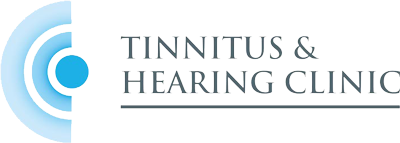“After a terrible ear infection during a particularly stressful period of work, I woke up one morning with tinnitus in both ears. It was high-pitched, hissing and very distressing. Even when my ear infection was treated and cleared, the tinnitus remained.”
Elizabeth Spencer recalls vividly the impact the tinnitus had on her life. As a busy HR Manager, she had been fit, healthy and confident. Her tinnitus changed all that. She found she couldn’t focus, even reading a newspaper was hard, and she felt insecure. Sometimes it seemed to make her feel ‘heady’ and unwell.
Elizabeth didn’t know much about tinnitus at that stage. Her GP, beyond treating the ear infection, seemed unable to help. Frustrated, she resorted to finding out as much as she could about tinnitus on the internet.
“I came across The Tinnitus Clinic website online. I was very impressed by the website. I had been so disillusioned by the level of help so far, even reducing the tinnitus a little would be preferable.”
“I arranged an Initial Assessment in Birmingham. I found the expertise and understanding really encouraging. Rekesh dealt with me with understanding, treating me as a person and not a patient. I no longer felt I was hitting a brick wall.”
Elizabeth’s audiologist suggested she would be suitable for Acoustic CR Neuromodulation treatment as she has tonal tinnitus and in the right frequency range. “Acoustic Neuromodulation is a treatment option exclusive to The Tinnitus Clinic, which aims to disrupt the neuronal synchrony which underpins chronic tinnitus,” explains Senior Clinical Audiologist Rekesh Patel. “A comprehensive series of audiological tests were carried out in clinic. Elizabeth was found to have a mild to moderate sensorineural hearing loss but was not keen to use hearing aids at this stage. After discussing all possible treatment options, Acoustic CR Neuromodulation was chosen and she was keen to go ahead as soon as possible.”
After just a few weeks of treatment, Elizabeth noticed her tinnitus was subsiding. The improvement was measured using the Tinnitus Handicap Inventory questionnaire and showed her tinnitus severity scores reduced considerably from 56 to 15.
Nearly a year on, the tinnitus has continued to be pushed back and the pitch of the tinnitus has reduced by approximately 2000Hz to a lower less intrusive tone. Her quality of life has improved and she is getting back to her old self. “I was heading towards becoming a recluse, despite always being gregarious and confident.
“I can now go out again. I have learned to adapt to the residual tinnitus. This treatment has been a positive and worthwhile experience, helping me to lead a normal life.”
“I would definitely advise other people with tinnitus to contact The Tinnitus Clinic. As specialists, the experience was fantastic. I would advise people to go along and find out what can be done to help them.”




